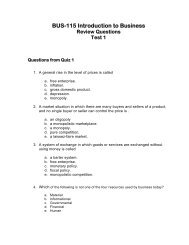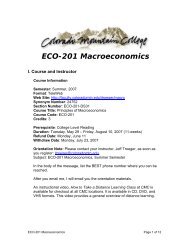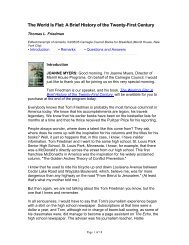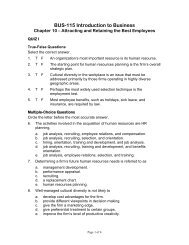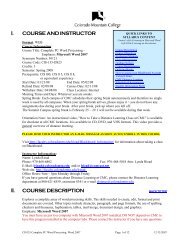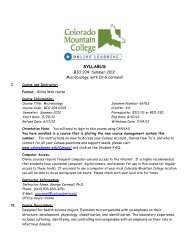Why the World Is Flat
Why the World Is Flat
Why the World Is Flat
Create successful ePaper yourself
Turn your PDF publications into a flip-book with our unique Google optimized e-Paper software.
Tom Friedman:<br />
It's a problem actually. The flat world is a friend of Infosys and of Al-Qaeda. It's a<br />
friend of IBM and of <strong>Is</strong>lamic jihad. Because <strong>the</strong>se networks go both ways. And<br />
one thing we know about <strong>the</strong> bad guys: They're early adopters. Criminals,<br />
terrorists – very early adopters. The person who understands supply chains<br />
almost as well as Sam Walton, is Osama Bin Laden. We have an issue <strong>the</strong>re<br />
with <strong>the</strong> most frustrated and dangerous elements of <strong>the</strong> world using this flat<br />
planet in order to advance <strong>the</strong>ir goals, to recruit over <strong>the</strong> internet, to inspire over<br />
<strong>the</strong> internet, and to transfer orders and raise money over <strong>the</strong> internet. So <strong>the</strong>y're<br />
using <strong>the</strong> flat world as much as anybody else.<br />
Our job is to try to soak up those tools, so that we can use <strong>the</strong>se collaborative<br />
tools in a more constructive way. But I have no doubt <strong>the</strong> flat world is a friend of<br />
both Infosys and Al-Qaeda.<br />
Nayan Chanda:<br />
Ano<strong>the</strong>r element which is interesting compared to "Lexus and <strong>the</strong> Olive Tree," is<br />
that olive trees have not disappeared; olive trees still have strong roots. So how<br />
do nationalism and a flat world intersect?<br />
Tom Friedman:<br />
That's a good question. I really tried to develop that idea beyond Lexus. You<br />
know in Lexus I wrote that no two countries would fight a war so long as <strong>the</strong>y<br />
both had McDonald's. And I was really trying to give an example of how when a<br />
country gets a middle class big enough to sustain a McDonald's network, <strong>the</strong>y<br />
generally want to focus on economic development. That is a sort of tipping point,<br />
ra<strong>the</strong>r than fighting wars.<br />
In "<strong>Flat</strong> <strong>World</strong>," I take that <strong>the</strong>ory one step fur<strong>the</strong>r into what I call <strong>the</strong> "Dell<br />
Theory" – you know, Dell Computers. The Dell Theory says that no two countries<br />
that are part of <strong>the</strong> same global supply chain will ever fight a war as long as<br />
<strong>the</strong>y're each still part of that supply chain. Now, <strong>the</strong> big test case is China and<br />
Taiwan. Both are suppliers of <strong>the</strong> main parts of computers. If <strong>the</strong>y go to war, don't<br />
try to order a computer this month because you'll have a real problem.<br />
Nayan Chanda:<br />
Dell computers are built with parts from…<br />
Tom Friedman:<br />
From about 400 different parts, but <strong>the</strong>re's probably 30-40 key parts. And what<br />
Dell actually did was trace all <strong>the</strong> key parts in my laptop that I wrote this book<br />
Page 23 of 25



